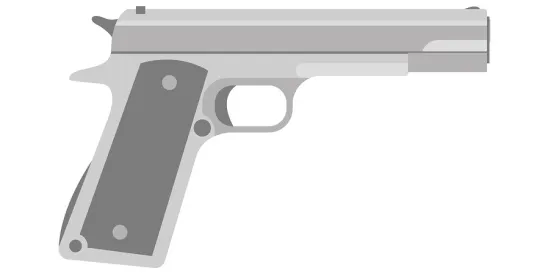The US Court of Appeals for the Fifth Circuit affirmed a district court’s decision to dismiss claims under the Louisiana Unfair Trade Practices Act (LUTPA), finding that a dispute against a related company did not toll the statute of limitations. Carbon Six Barrels, LLC v. Proof Research, Inc., Case No. 22-30772 (5th Cir. Sept. 29, 2023) (Clement, Elrod, Willett, JJ.)
Proof Research and Carbon Six Barrels both manufacture gun barrels made of carbon fiber. Proof was the first of the parties to enter the market and in 2013 trademarked the unique mottled appearance of its barrels. In 2016, Proof discovered that Carbon Six intended to manufacture and sell similar-looking carbon-fiber barrels and sent a cease-and-desist letter. Carbon Six began production in 2017, sourcing barrel blanks from its sister company McGowen Precision Barrels. Proof filed a trademark infringement suit against McGowen, instead of Carbon Six, in the District of Montana. McGowen initiated a separate proceeding in the Trademark Trial & Appeal Board to cancel Proof’s trademark and was successful in doing so.
After the Board cancelled Proof’s trademark, Carbon Six sued Proof in the Middle District of Louisiana alleging that Proof fraudulently registered its trademark, violated LUTPA, and defamed Carbon Six during the initial litigation and Board proceeding. McGowen brought a similar suit in the District of Montana. Proof asserted several defenses in the lawsuit filed by Carbon Six, including a Rule 12(b)(6) motion to dismiss for failure to state a claim, arguing that Carbon Six’s claims were both untimely and legally insufficient. The district court denied Proof’s other defenses but granted the Rule 12(b)(6) motion, finding that Carbon Six’s claims were time-barred by Louisiana’s one-year prescriptive period and that Carbon Six’s LUTPA claim was also legally insufficient. Carbon Six appealed.
The Fifth Circuit affirmed, explaining that LUTPA has a one-year prescriptive period and that there was no doubt that the violations alleged by Carbon Six occurred more than a year before Carbon Six filed suit in early 2022. The Court reviewed all actions that could potentially give rise to liability under LUTPA and stated that even if any of these acts could give rise to liability, all actions occurred more than a year before Carbon Six’s suit.
Carbon Six attempted to rely on the continuing tort doctrine, alleging that the acts continuously violated LUTPA up until the Board cancelled Proof’s trademark in May 2021. Reviewing Louisiana law, the Fifth Circuit determined that the general principle of a continuing tort is a conduct-based question “asking whether the tortfeasor perpetuates the injury through overt, persistent, and ongoing acts.” The Court agreed with the district court that LUTPA’s prescriptive period is not suspended if a perpetuator of fraud fails to correct false statements, as that proposition would transform almost every business dispute into a continuing tort. The Fifth Circuit also determined that the district court’s conclusion that Carbon Six could not recover for Proof’s lawsuit against McGowan was correct, because the law supported the position that a sister corporation cannot sue on behalf of another sister corporation. The Court also found that Proof’s attempt to enforce a later-invalidated trademark did not violate LUTPA because Proof’s conduct fell short of the egregious conduct necessary to support the LUTPA claim.
The Fifth Circuit determined that the defamation claims in Louisiana were subject to the same one-year prescriptive period and, like the LUTPA claims, were untimely. The Court stated that the last allegedly defamatory remarks by Proof were from the Board trial brief in late 2020, more than a year before Carbon Six filed the defamation claim. Carbon Six attempted to avoid the prescriptive period by arguing that the one-year period should have been suspended until the Board rendered its opinion, or when the Montana litigation was dismissed. The Court disagreed, explaining that Carbon Six could not rely on any exceptions since it was not a party to the Montana litigation. Further, the Court explained that Proof’s statements did not arise out of the same set of operational facts as set forth in the prior proceedings and were not material to either. The Court explained that Carbon Six would have been free to bring a defamation claim against Proof while the prior proceedings were ongoing and could not now claim that the prescriptive period was suspended.




 />i
/>i

